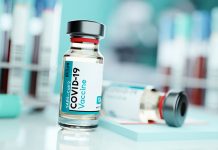Public health agencies throughout the country are reviewing their procedures for treatment of individuals who have contracted the Ebola virus. At the Oct. 27 meeting of the King County Council, the regional health officials taking the lead on Ebola preparations told the committee that while the possibility of a patient in our area being infected with Ebola patient is remote, they are actively preparing on a local and regional level to manage a suspected or confirmed case of Ebola as well as train and monitor the staff who would care for that individual.
“Fewer than 1 percent of the people arriving in the U.S. who have been in the regions most impacted by the Ebola virus are coming to this area,” said Dr. Jeff Duchin, Chief of Communicable-Disease for Public Health — Seattle & King County. “But our treatment and our steps will be based on best practices and science, not fear.”
Earlier this month, as the U.S. started treating the first patients identified in this country as having the Ebola virus, Harborview said they would be willing, in coordination with the U.S. State Department, to consider caring for US citizens, particularly those individuals from our community, depending on their capacity, ability to do so safely, and need to maintain other priorities such as serving as the level 1 trauma and burn center. This is consistent with Harborview’s role as the Disaster Control Hospital for Seattle & King County and long-standing relationship with public health to serve our community.
The briefing included Dr. Duchin and Dr. Timothy Dellit, Harborview Medical Center’s Associate Medical Director and Chief of Infectious Diseases. They were joined on the panel by:Patty Hayes, Interim Director of Public Health Seattle & King County; Johnese Spisso, Chief Health System Officer, UW Medicine and Vice President for medical affairs, University of Washington; And Dr. Rick Goss, Harborview’s Medical Director.
Duchin and all of the speakers stressed that while Harborview did agree to the request by the Centers for Disease Control and Prevention to prepare and consider caring for a person infected with Ebola, Harborview was not the “Ebola hospital for the region.” Those who would be treated at Harborview would be local residents and health professionals who have been infected because of their work in the African nations battling the epidemic.
“All facilities have to be ready to identify those at risk, and all facilities have to be prepared to initially manage patients who may present with suspicion for Ebola Virus Disease,” said Dr. Dellit. “If there are patients in our community with Ebola, we must have multiple facilities that are prepared.”
Doctors Goss and Dellit also spoke about the daily preparations taking place at Harborview to prepare staff for the treating of potential Ebola patients, with a focus on ensuring the health professionals are aware of the steps they need to take to prevent self-contamination. “Each opportunity we have to drill and prepare, we can see the level of confidence increase,” said Goss.
The health professionals also answered member questions on the incubation period of Ebola (21 days) and regional collaboration at ports of entry such as SeaTac Airport and cruise terminals. Dr. Duchin said that King and Pierce Counties already work in collaboration on infectious disease control and that Public Health has been in contact with the Port of Seattle.
“I wanted to thank those involved with Harborview and Public Health—Seattle & King County for their continued diligence in preparing for patients who may have contracted the Ebola virus,” said Council Vice Chair Jane Hague, chair of the Committee of the Whole. “The public should be assured that they are training, drilling and staying in communication with the CDC and regional partners on a daily basis.”
Everyone on the panel said the best steps to prevent the spread of any communicable disease are the basic steps you take to stop the spread of the common cold and flu; wash your hands, cover your coughs and sneezes and stay home if you’re sick.















